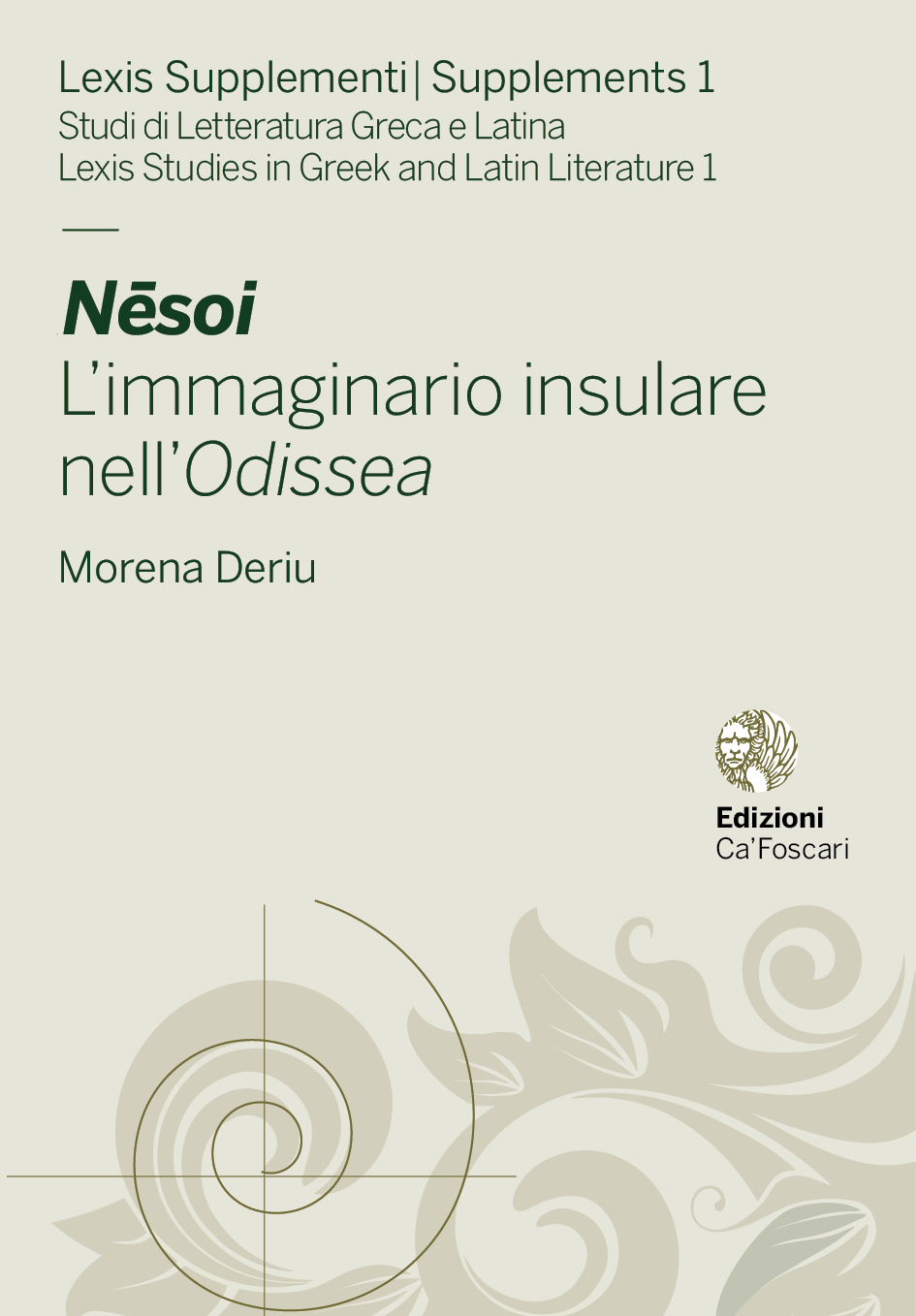Series |
Lexis Supplements
Volume 1 | Monograph | Nēsoi. Island imagery in the Odyssey
Nēsoi. Island imagery in the Odyssey
open access | peer reviewed- Morena Deriu - Università degli Studi di Cagliari, Italia - email
Abstract
The aim of this book is to shed new light on the connections between the islands of the Odyssey, setting aside the common perspectives which fully contrast Ithaka to the isles of Odysseus’s travels. Indeed, on a close reading, the idea of ‘otherness’ frequently associated to these isles can be perceived as the result of shared traits. The book first offers an introductory survey on the studies about islands and insularity (not only) in the Odyssey. Then, it analyses how and in which terms the Odyssean representations of the islands are elaborated by means of references to the characters’ senses and actions. These representations are frequently parts of archipelagos of memories, and all bear witness to the fact that fantastic and realistic traits are intermingled and can permeate each other on all the Odyssean islands. Thus, the isles of these travels can be perceived as marginal and mixed places which are also meaningfully part of the archipelago of thematic and formal relations which links all Odyssean islands. The second section of the book examines this archipelagic scenario by using the concepts of utopia and heterotopia. The section shows how the islands of the Odyssey and, especially, the islands the hero encountered on his travels should not be considered utopias in the strict sense of the word. It then goes on to show how M. Foucault’s heterotopia can help to highlight a series of insular aspects, which, otherwise, could pass unnoticed. These lands stand at the margins of the world of the Odyssey and are, at the same time, connected to all the other islands. As a result, they work like mirrors which reflect images of different and possible worlds. In particular, the Odyssean isles of women mirror different and possible relationships between Odysseus and the lady of the island and help to enlighten the place which the hero perceives as the perfect home among all the possible choices. Finally, a brief analysis of the prophecy about the hero’s future last adventure shows that there is no chance of Odysseus feeling at home on that ‘other’ place of this last journey.
Keywords Odyssey • Gender studies • Heterotopia • Utopia • Island • Women • Archipelago • Michel Foucault
Permalink http://doi.org/10.30687/978-88-6969-470-7 | e-ISBN 978-88-6969-470-7 | ISBN (PRINT) 978-88-6969-471-4 | Number of pages 202 | Dimensions 16x23cm | Published Oct. 30, 2020 | Accepted Sept. 24, 2020 | Submitted Aug. 31, 2020 | Language it
Copyright © 2020 Morena Deriu. This is an open-access work distributed under the terms of the Creative Commons Attribution License (CC BY). The use, distribution or reproduction is permitted, provided that the original author(s) and the copyright owner(s) are credited and that the original publication is cited, in accordance with accepted academic practice. The license allows for commercial use. No use, distribution or reproduction is permitted which does not comply with these terms.
- Prefazione
- Oct. 30, 2020
- 1 Di isole e insularità
- Oct. 30, 2020
- 2 Paesaggi insulari nell’Odissea
- Oct. 30, 2020
- 3 Isole, utopie ed eterotopie
- Oct. 30, 2020
- 4 Un arcipelago di donne
- Oct. 30, 2020
- 5 Arcipelaghi
- Oct. 30, 2020
